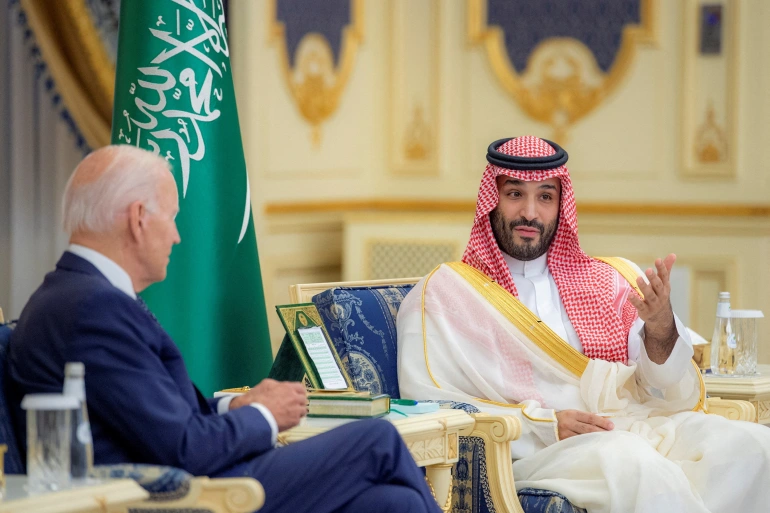US, Saudi Arabia ties turn sour over OPEC+ oil cuts
Saudi Arabia dismissed as “not founded on facts” criticism of an OPEC+ decision last week to cut its oil output target despite US objections, saying on Thursday that Washington’s desire to postpone the cut by a month would have had severe economic effects.
On Thursday, the White House fought back, claiming it had supplied the Saudis with an analysis that showed the cuts would harm the global economy. The back-and-forth has exacerbated what has already been a tense era in the two nations’ ties, which have had an energy-for-security agreement for decades.
The OPEC+ decrease has generated fears in Washington about the likelihood of increased gasoline prices ahead of the November midterm elections in the United States, where Democrats are attempting to keep control of the House of Representatives and Senate.
Following OPEC+’s decision, US President Joe Biden stated earlier this week that “there would be consequences” for US ties with Saudi Arabia.
The OPEC+ decision was reached by agreement, took into account the balance of supply and demand, and was intended to reduce market volatility, according to a statement issued by the Saudi foreign ministry on Thursday.
The Saudi foreign ministry statement refers to negotiations with the US previous to the OPEC+ summit on Oct. 5, during which it was urged to postpone the cuts by one month.
“The Kingdom underlined through its ongoing contacts with the US administration that all economic calculations show that delaying the OPEC+ decision for a month, as indicated, would have had severe economic implications,” the Saudi foreign ministry said in a statement.
After weeks of lobbying by US officials, OPEC+, the producer group comprised of the Organization of the Petroleum Exporting Countries (OPEC) plus allies including Russia, announced a two million barrels per day decreased to its production target last week.
The move came despite the fact that gasoline markets remain tight, with stocks in key economies lower than when OPEC has previously lowered supply.
The US accused Saudi Arabia of kowtowing to Moscow, which is opposed to a Western cap on Russian oil prices in reaction to its invasion of Ukraine. “We presented Saudi Arabia with analysis to show that there was no market basis to cut production targets and that they could easily wait until the next OPEC meeting to see how things developed,” White House spokesman Jack Kirby said in a statement, adding that other OPEC nations told the US they felt “coerced” to support the Saudi decision.
The Saudi foreign ministry statement, quoting an anonymous source, emphasized the oil cut’s “purely commercial perspective.” Oil demand has fallen globally, with OPEC, the US Energy Department, and the International Energy Agency all cutting 2023 consumption predictions this week.
The International Energy Agency (IEA) noted on Thursday that OPEC’s action might aggravate demand, stating that “increased oil prices may prove the tipping point for a global economy already on the verge of recession.”
According to the Saudi statement, the kingdom considers its relationship with the United States as “strategic,” emphasizing the need for mutual respect. The Gulf Cooperation Council (GCC) released a statement in support of Saudi Arabia’s remarks, applauding the kingdom’s efforts to keep the market stable.
According to Goldman Sachs data published this week, OPEC has never lowered production while stocks in Organization for Economic Cooperation and Development nations – comprised of 38 of the world’s biggest economies – were so low in the past 25 years. OECD stocks are now 8% lower than their five-year average. They did remark, however, that OPEC lowered supply during periods of low demand.
بيان الرئيس جو بايدن بشأن تصويت الجمعية العامة للأمم المتحدة لإدانة محاولات روسيا غير الشرعية ضم أراض أوكرانية إليهاhttps://t.co/SGz3EfS9dR
— U.S. Embassy Riyadh (@USAinKSA) October 13, 2022
